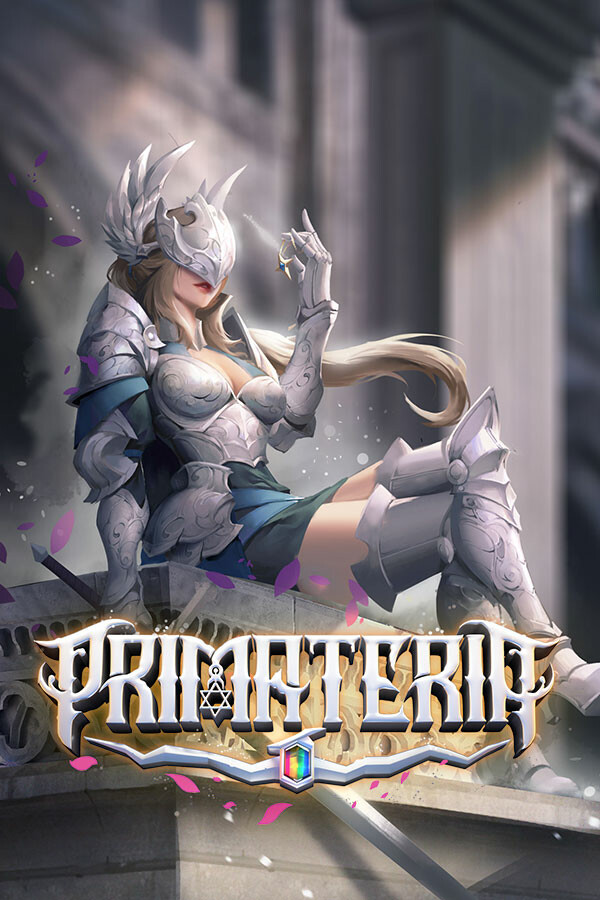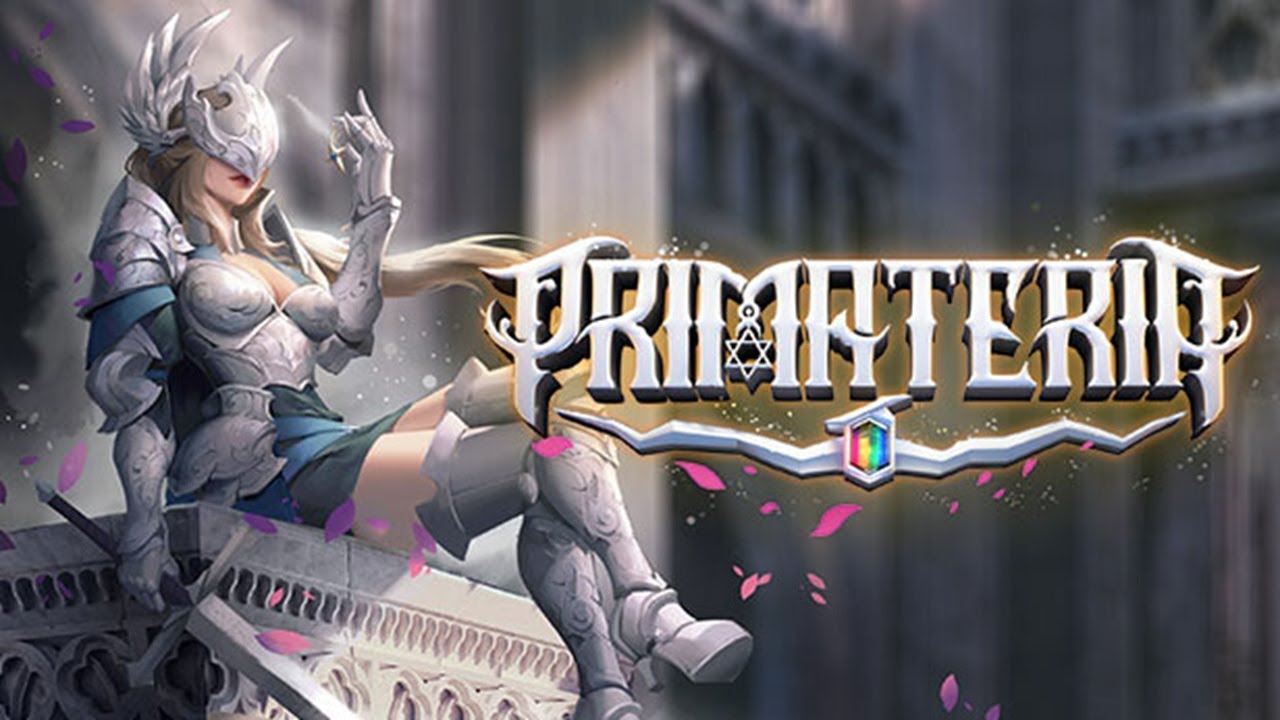
Primateria brings novelties to the roguelike deckbuilder genre, but still lacks refinement
The deckbuilder genre is growing more and more every year and there’s always a title that brings something new to the gameplay. In Primateria we’re inspired by Yu-Gi-Oh! Forbidden Memories and its mechanic of combining cards from the hand to create a new, stronger one.
This is something I haven’t seen back and it’s an excellent mechanic to have in a game, but let’s discuss whether it’s enough to hook the player and their audience on a livestream.
Primateria brings fast and distinctive gameplay
The gameplay in Primateria is simple from the outset, but it gets much deeper as you get further into the game, where a small mistake can cost you the entire game and give you a nice Game Over screen.
The game works in a simple way: you can combine two lower-level monsters by adding up their values, in order to summon a stronger one from your hand and draw a new card. For example: 2 level 1 monsters combine to summon a level 2 monster. It sounds a bit confusing, but it’s simple gameplay like an addition account, where you combine weaker monsters from your table to summon stronger monsters from your hand.
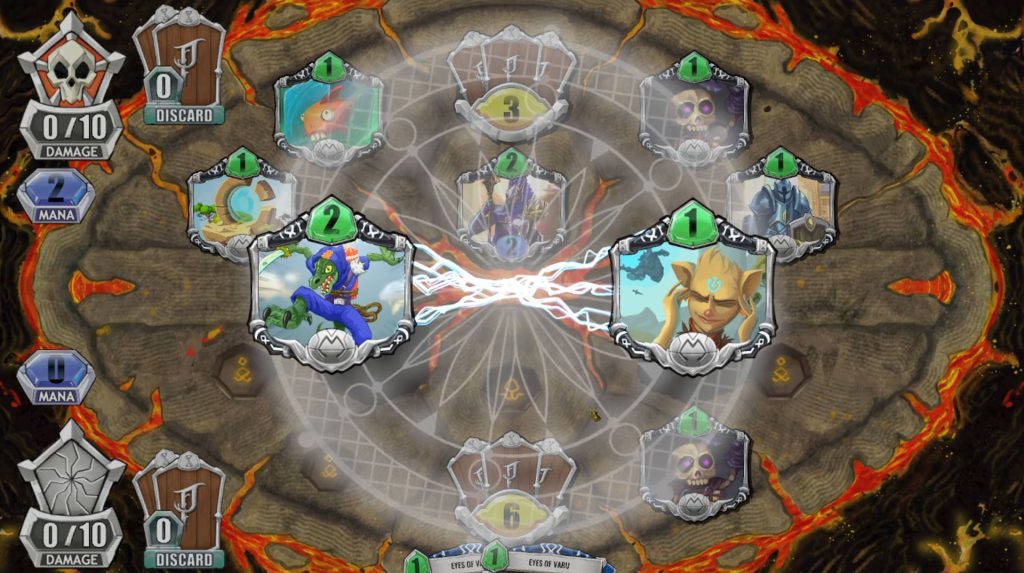
In combat, you need to beat monsters using more strength than they currently have, so a level 1 creature can’t beat another with the same value, and you need to use at least one other card together to combine their values and destroy the one with the lower strength.
The game has a good tutorial that teaches you the mechanics of the game straight away, without overstaying its welcome, allowing you to start playing within a few minutes of starting it.
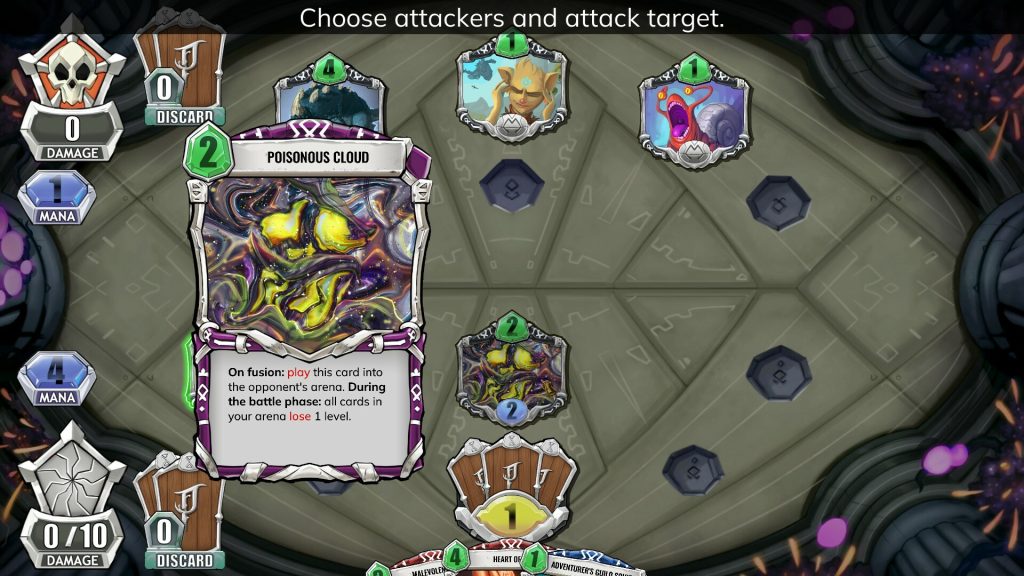
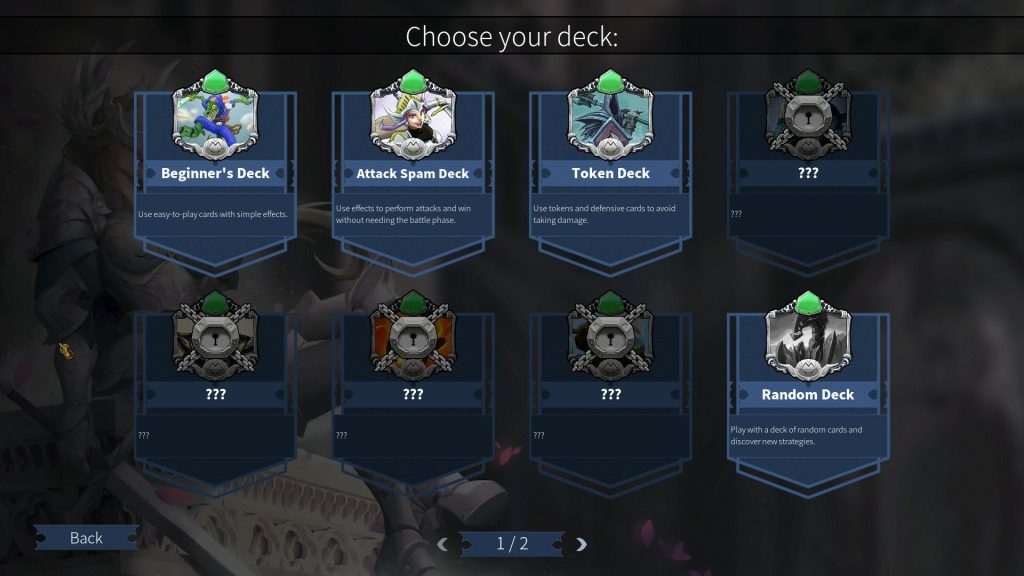
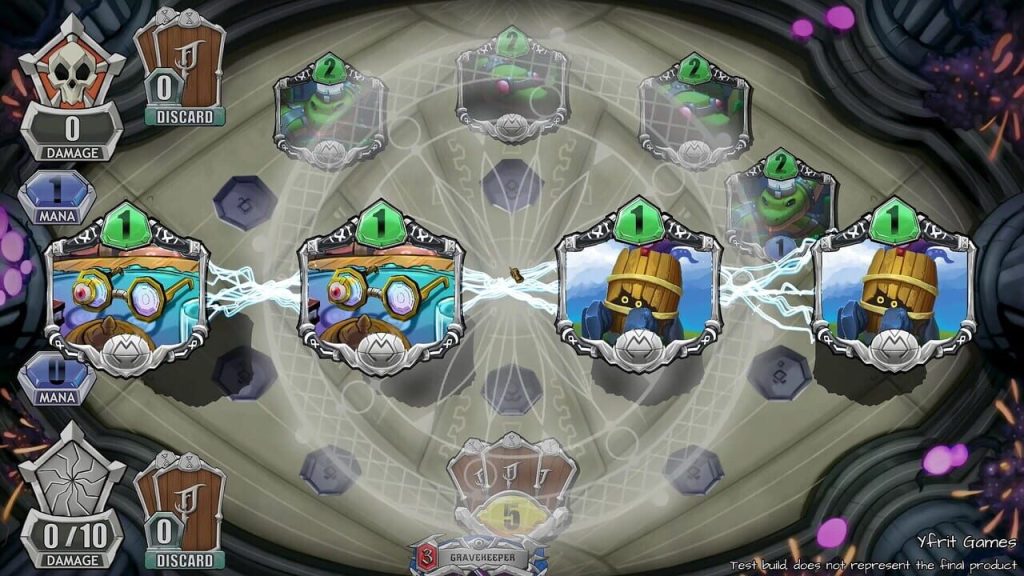
Roguelike mechanics hurt more than they help
I’m a big fan of Roguelike/Lite games, but this one, in general, I felt would work better as a game focused on story, collecting cards and facing other characters and bosses, similar to the game it’s inspired by, Forbidden Memories. And of course, the roguelike mode as an extra replayability option works very well too.
What gave me this feeling was that I enjoyed facing other characters in the game in a duel where we both had the same rules, rather than doing the fights where you start with enemies on the board and have to destroy them all in order to advance, without having to make the HP of your opponent reach zero, it’s similar to solving a puzzle. I wasn’t very excited about each of these fights, but the normal combats in the game were exciting to play.
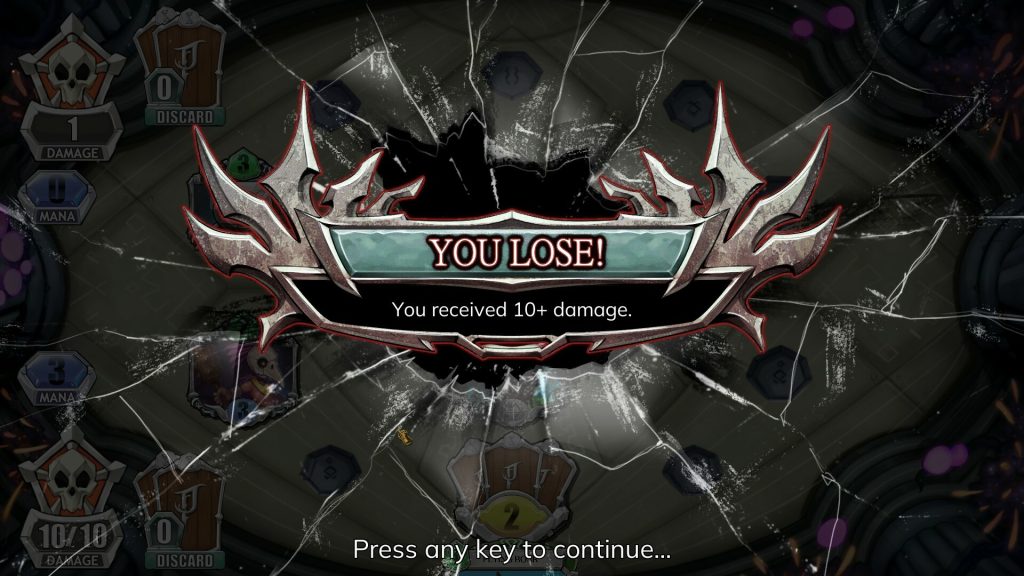
The game, which is in early access, has a mission mode and an infinite mode, where you play in practically the same way, the difference being that one ends up reaching a certain level and the other only after the player loses a fight.
Tested in its PC version on Steam, the game is super light and runs smoothly on most machines, allowing streamers to bring it to their live stream without any problems. The game is translated into 6 languages, making it easier for the streamer and his audience to follow along.
Primateria
Summary
In general, Primateria has a very nice art direction for its cards and characters, a very fun mechanic that I feel could be better used in other game modes besides the roguelike deckbuilder style. As the game is still in early access, let’s see what the future brings for this project.
SHARE:


